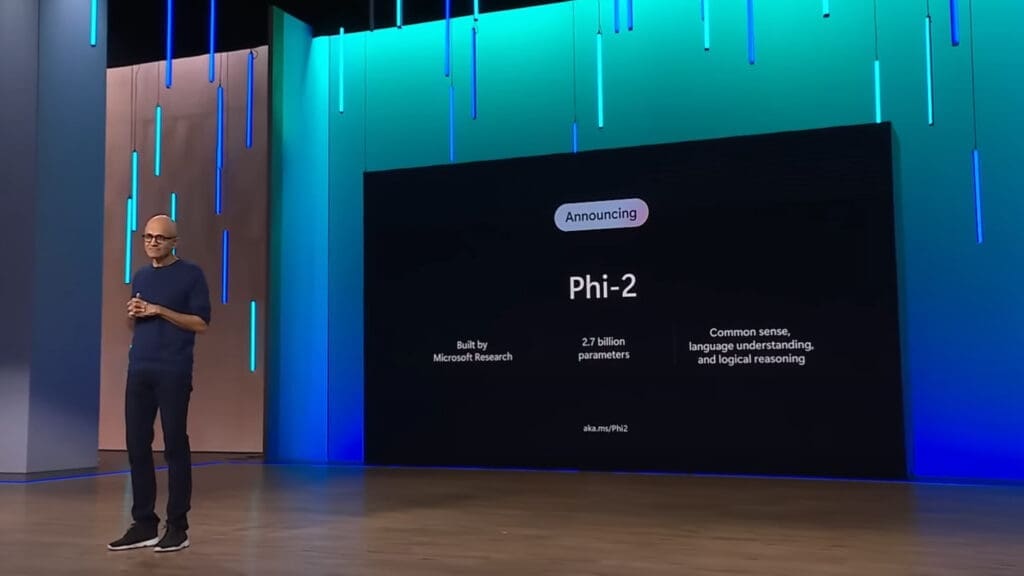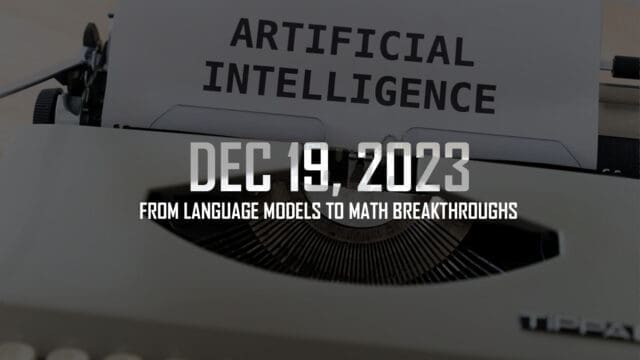Microsoft’s Phi-2 Model: Pioneering Advancements in Language Understanding
Microsoft’s Phi-2, a 2.7 billion-parameter model, has set a new benchmark in reasoning and language understanding within the realm of base language models with less than 13 billion parameters.
Building on the success of Phi-1 and Phi-1.5, Phi-2 not only matches but surpasses models up to 25 times larger, showcasing innovations in model scaling and training data curation.
Its compact size positions Phi-2 as an ideal platform for researchers, enabling exploration in mechanistic interpretability, safety enhancements, and fine-tuning across diverse tasks. Key to Phi-2’s achievements are its emphasis on training data quality, incorporating “textbook-quality” synthetic datasets, and leveraging innovative scaling techniques, including knowledge transfer from its 1.3 billion parameter predecessor.

Rigorously evaluated across various benchmarks, Phi-2 demonstrates exceptional performance in Big Bench Hard, commonsense reasoning, language understanding, maths, and coding assessments.
Internet Boom in India: A Double-Edged Sword
In 2022, India’s internet usage soared to 52%, with over 467 million social media users, expected to hit a billion by 2025. Meta, Instagram, WhatsApp, YouTube, and Snapchat found their largest audience in India, influencing politics, religion, and culture.
However, a 2021 leak exposed internal Meta documents on election interference in the US and India. Digitized since 2016, these documents are accessible via Harvard’s Public Interest Tech Lab, uncovering platform strategies. The impact of these platforms fuels violence, prompting a need for accountability and public awareness.
Language Model Breakthrough: FunSearch Reveals Scientific Insights
Scientists at Google DeepMind claim to have achieved the world’s first scientific discovery using a large language model (LLM), challenging the belief that models like ChatGPT merely repackage information.
DeepMind’s “FunSearch” project utilised an LLM to generate computer program solutions, evolving them through an automated evaluator. Successfully addressing mathematical challenges, FunSearch provided new insights into the cap set problem and enhanced solutions for the bin packing problem, detailed in Nature.
While this breakthrough fosters collaboration between AI and mathematicians, researchers are exploring FunSearch’s capabilities within specific scientific problem domains.

























